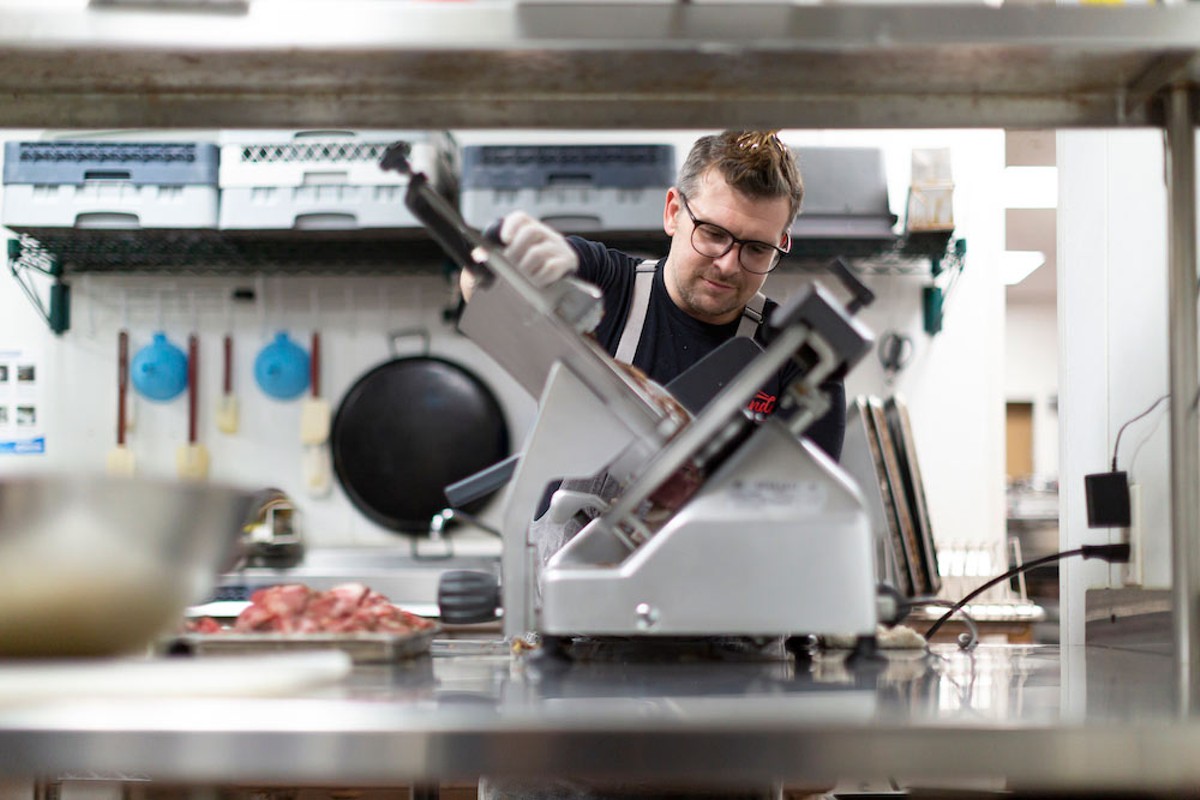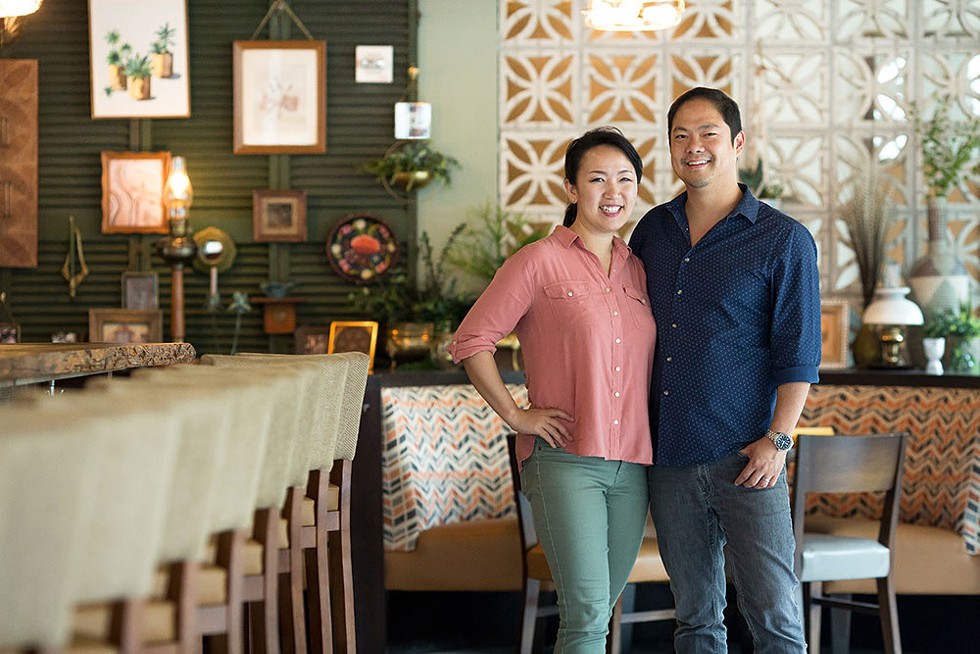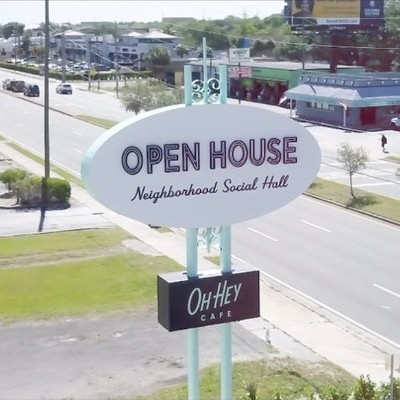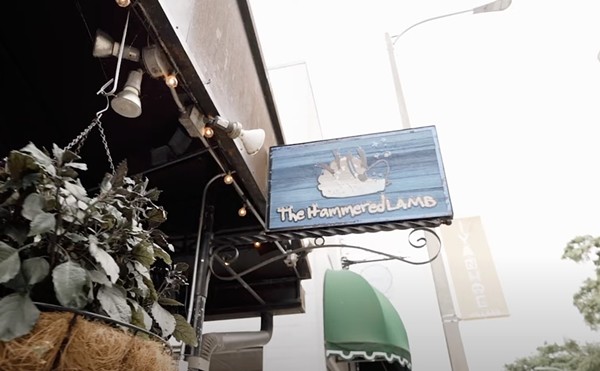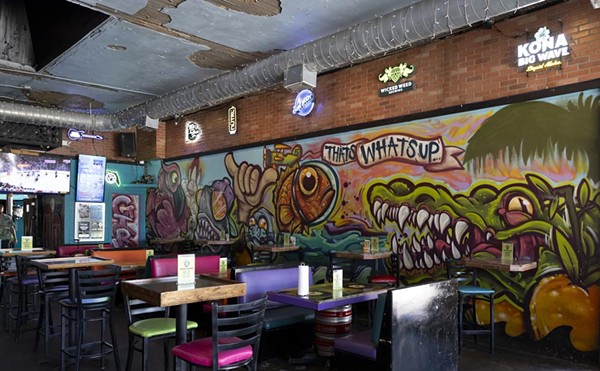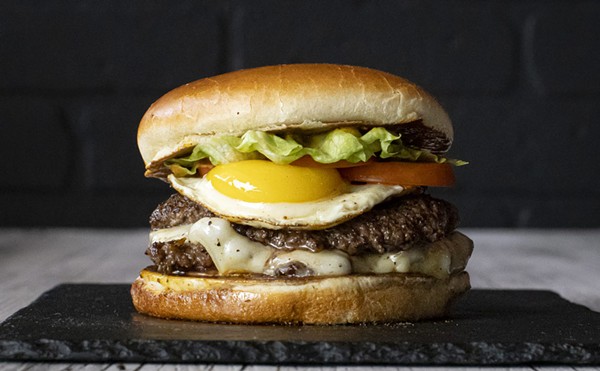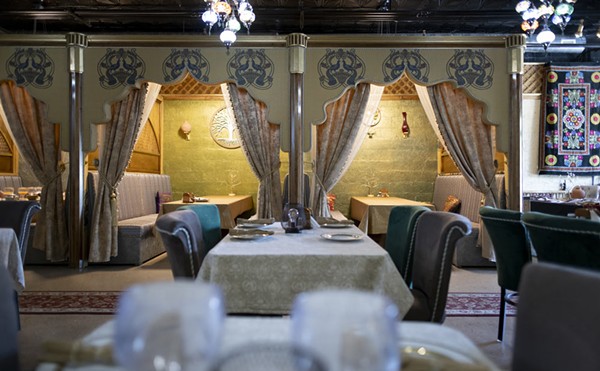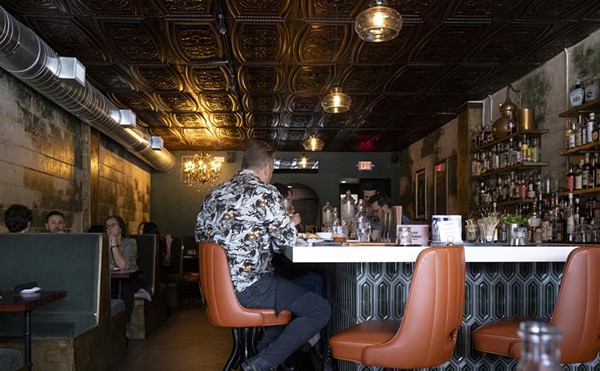A cascade of pandemic-caused adversity has plagued independent restaurants over the past couple of years. But even more than the forced closures, pivots to takeout and protracted supply-chain issues, one particular struggle is bringing the industry to its knees: epic staffing shortages.
Kitchen workers aren't flocking back to restaurants in this not-so-post-COVID-19 era as restaurateurs had hoped they would, and the reasons are well-documented: everything from low wages and long hours to unsafe working conditions and a culture that's historically glamorized a boys-behaving-badly mentality. There's no question that exploitation of labor has fueled the industry for decades, and while conversations are now being had around such hot-button issues as livable wages, sexual harassment and mental health awareness, there's no getting around the fact that independent restaurant owners are, once again, being faced with a perilous situation.
"WE'RE SHORT-STAFFED! WINTER PARK WILL BE CLOSED TODAY!" blared an Aug. 24 post on Swine & Sons' Instagram page. Beneath it, a blunt declaration: "We'll be closed today so we can get some prep done, and try and preserve the sanity of the team members that are still with us." The post received more than 300 likes and numerous comments.
"We're all going through it," wrote both Wendy Lopez of Reyes Mezcaleria and Juliana Calloway of Black Rooster Taqueria. "We're feeling it, too!" said a post from chef-run counter concept Farm & Haus.
The post clearly resonated with restaurant owners who, in a pre-pandemic world, would've received a flood of applicants for an open cook or server position.
Not anymore.
COMPENSATION
"We're in for a rude awakening."
Jason Chin, who runs Seito Sushi Baldwin Park, the Osprey, Reyes Mezcaleria and the Monroe with his wife, Sue, says it's been really tough to attract new hires.
"Our starting pay has gone up, and we already have good competitive health benefits, but it's still difficult to find employees," Chin says. In fact, Seito posted its own "We will be closed due to staffing shortages" pic on Instagram Aug. 31.
"I think we're in for a rude awakening," says Calloway, who runs Black Rooster Taqueria with her husband, John. "A lot of people left and won't be back, and I don't think it had anything to do with 'free money' from the government or whatever that whole conversation was."
The claim that workers were content to forgo work in favor of collecting an unemployment check is a common misconception.
Florida has among the lowest unemployment benefits in the nation at $275 per week for 12 weeks — and that's the maximum; many restaurant workers didn't earn enough to get even that much. The state also opted to end federal unemployment assistance on June 26, which had provided an additional $300 per week to eligible applicants.
The Pinery's Carol Holladay has been on both sides of the server/management divide and feels for workers who, as she puts it, "live hand to mouth." Holladay says, "Many didn't have savings, so they went back to school to better themselves or they took jobs at Target where they could make more money." She points out, "A lot of it is to be blamed on our industry. We don't have programs for mental health or financial stability."
Competing against big-box chains and corporate-backed restaurants is a challenge for local mom-and-pop outfits like Kai Asian Street Fare in Winter Park. "We're not Disney," says owner Quan Van. "Disney can afford to hire less skilled workers, pay them more and give them benefits, but we're a very small operation and don't have that sort of advantage."
Talk to any restaurant owner and they'll tell you that this wasn't so much of an issue pre-pandemic, as the candidate pool was a lot larger. But now, workers find themselves in the position of being more selective, able to choose a job that's best for them. Increasingly, that means one in a different field.
Calloway, nevertheless, hopes that the benefits she provides will help them in the hiring process. "I don't really know of any other small places like ours that offer health care and a 401(k)," she says, "but I'm nervous for when we have to staff up our second location in a few months."
"We are really struggling," says Brittany Walsh-Lyne of Farm & Haus. "We're having to cut hours or close. I've spoken with several small business owners in the industry, and everyone is feeling the weight of rising prices and the need to raise pay to try and lure workers during the shortage we're experiencing."
Lyne says they start at $15 per hour for back-of-house positions in addition to a $100 bonus after completion of training. Free meals and discounts are also being offered, but sweetening the pot hasn't proven very effective. That has worried owners anticipating a major economic and, perhaps more importantly, cultural shift in the industry.

CULTURE
"You really have to be willing to take a fair amount of abuse."
"It's a toxic environment," says Sam, a former cook who agreed to go on the record, but whose real name we've concealed. "As a cook, you really have to be willing to take a fair amount of abuse. I cut and burned myself constantly. My back, feet, arms and shoulders would always hurt. My mental health was being compromised because I thought things would get better, and that just wasn't the case. The money wasn't coming, and I was doing the work of three people. I became so cynical. It changed my personality. I was becoming this person that I didn't want to be.
"I was taking all this stress and abuse and for what? To make food?"
Being subjugated to physical, emotional and mental abuse, as well as suffering the disrespectful behavior of customers, are all known environmental hazards of working in restaurants. Yet many get into the business with hopes of opening their own restaurant, of becoming a well-known chef and living the oft-glamorized Kitchen Confidential lifestyle.
"Anthony Bourdain was partly responsible for this romanticized, tattooed-badass-chef ideal, but going into this thinking you'll become a famous chef is naive," says Sam. "Honestly, any intelligent person wouldn't willfully go into this business. It sucks because I have a real passion for food, and now I really don't want to do it."
Eliot Hillis, the culinary director and co-owner of Orlando Meats, admits that many go into restaurant kitchens with a false set of expectations. "When the Food Network started to glamorize cooking, you saw a massive influx of people watching Ming Tsai and Emeril Lagasse and Alton Brown. My contemporaries were these people who thought they were going to be the next Food Network Star, James Beard Award winner or Michelin-starred chef.
"My parents worked in restaurants and told me it was gross, not glamorous, and that you're working while everyone else is playing. And it's true."
That said, there are many cooks and chefs, like Hillis, who can't imagine doing anything else, no matter the conditions, no matter the pay. These lifers have gone through the industry's harsh initiations, just like those that came before them, and have a hard time understanding why they can't draw driven, passionate and qualified candidates.
"You have to be molded and forged in the fires of the kitchen," says Hillis, who's been cooking in restaurants for 14 years. "Every kid coming here has been asking for $18-$20 an hour and they're barely qualified to wash dishes for me. They have no skill or hustle. It was depressing to see this 65-year-old guy who claimed to be a good cook not know how to brunoise onions [a basic culinary professional skill]. You don't get into cooking to be a millionaire — you get into cooking because you love cooking."
Kai's Quan Van says the pandemic allowed folks to get used to what he called "a more relaxed lifestyle" and that downtime made them question whether they wanted to return to the restaurant grind. Indeed, for Sam, having time to think about his future spawned an epiphany of sorts.
"It was a realization for me. It gave me a chance to analyze what was going on in my life. At the restaurant, I was told point-blank that I'd be working more hours for the same pay. I needed the money, but when you're in the moment, you don't have the benefit of perspective. The risk factor grew too great, and I realized I didn't need to take this abuse. I could go back to school, or I could look for jobs out there that offered me a work-from-home option and benefits. The minimum wage was raised, but many people are saying it's not worth it."
For chefs like Hillis and others, a pragmatic approach is the only approach. He and chef de cuisine Seth Parker are now working 15-hour days, six days a week.
"It's like the theater," says Hillis. "The show must go on."
But that sort of work-till-you-drop mindset is just one facet of restaurant culture that's being called into question.

CHANGE
"People have to adapt and change their attitudes towards employees."
A former cook at a very well-known Orlando restaurant, who prefers to remain anonymous, said culture was the primary reason she chose not to return to the industry. "It can be incredibly toxic and I'm very grateful and lucky to not have to live like that anymore. I can only hope that the staffing shortage will spark real, true change for the industry."
Change is precisely what the Pinery's Holladay has in mind. She's held various roles in 26-plus years in the restaurant business, from server to hostess to general manager. But in her current role as operating partner at the Ivanhoe Village restaurant, Holladay is determined to alter the cultural landscape through corrective measures.
"Kids today couldn't have made it in the environment we came up in," she says. "There was a level of harassment, sexual and otherwise, that came with this business. Even the way your co-workers treated you was atrocious.
"That sort of mentality does damage and puts poison in the well. It's a cancer. If you don't get rid of it, it will wreak havoc on your business and kill it. So, culture is big for me and, specifically, treating people with respect is a big part of who I am. Culture, in fact, is a big part in retaining staff right now, and I've retained them at a cost."
Holladay says she's not afraid to throw out the bad apples in an effort to nurture a more positive work environment — "I had to let someone go because of it," she says, then adds, "Collaboration is one of my principles. I want everyone to speak at the table and feel comfortable doing so."
But it's just one step of many that need to be taken for the restaurant industry to shed its tarnished image.
"They have to escape this reputation of being a place full of womanizing ex-convicts who aren't going to pay you and that you need to get your glory like a soldier," says Sam. So, what changes does he feel need to be implemented? "I'd like to see a human resources department, even if it's just one person, dedicated to the happiness of employees. They need someone who can help them put together a benefit package, even a health stipend. And place a system to allow employees to put in for time off."
Those who've never worked in restaurants may be surprised to learn that such programs and benefits aren't commonplace in the industry. Many restaurant owners resist implementing them as they already operate on razor-thin margins.
Holladay says the Pinery doesn't provide health benefits, but they've also only been open for less than three months. The moment they're on more stable footing, she'll focus on offering a health care package to employees.
In the meantime, "fun exercises" are being integrated every month to boost the morale and mental health of her staff — activities ranging from yoga on the patio to cleaning up Lake Ivanhoe on paddleboards to CPR training. Who benefits? Not just the employees, she says, but the community as a whole.
"I have high hopes for this industry," Holladay says. "I love it and want it to succeed, but people have to adapt and change their attitudes towards employees."
The "change before you have to" idiom really seems to apply to the current state of the industry but, if there has been a positive effect, it's that restaurateurs seem a whole lot more engaged with the issues that need to be addressed.
"There has definitely been a shift in restaurant culture, which is certainly a welcome change," says Chin. "But that's been happening since the pre-pandemic era. Perhaps what we're going through is an acceleration of what was already in motion."
FORGED ANEW
"Just like the cicada, we'll go dormant until we can swarm again."
A shifting culture in a field desperately in need of an image makeover can only be viewed as welcome, but what does that mean for the immediate future? And what changes can consumers expect to see?
"Restaurants will survive," declares Calloway, "but it's going to be an uphill battle every step of the way. As owners, we'll have a different pool of candidates to choose from. I think we'll have to hire younger people, perhaps even right out of high school."
Conversely, Hillis fears that in the next year or two, the industry will languish in this problematic state until there's a snapback when, as he puts it, "people realize that there's something fulfilling about getting your hands dirty and really grinding it out." Working in restaurants isn't for everybody. Hillis feels this "snapback" will purge the industry of folks who think restaurant life — kitchen work in particular — is glamorous.
"A lot of places that have cooks, they aren't cooks in the way I'm a cook. There are many restaurants in town who employ cooks who couldn't cook in our kitchen because of the nature of what we do. I know I sound like an old man, but kids these days are looking for a financial payout rather than fulfillment. And I find it hard to believe that the human spirit is dead in this realm of caring about what you do and leaving some kind of mark. I think restaurants will go by the wayside, and things we do will go by the wayside, but then there will be a resurgence. Just like the cicada, we'll go dormant until we can swarm again."
If an equilibrium of sorts is to be reached, it may come at a cost. Restaurants are already feeling the squeeze of rising costs, and the $28.6 billion Restaurant Revitalization Fund ended, as was widely reported, under a cloud of errors and confusion.
"Right now, we're seeing an increase in prices across the board, from proteins and produce to fryer oil and cleaning products," says Chin. Coupled with increased wages and rents, these factors will more than likely increase the cost of going out to eat.
Walsh-Lyne concurs that menu prices will go up, but notes that innovations like the ones many restaurants devised during the pandemic will play a role. "We'll see a lot of thinking outside the box on how to keep costs down," she says.
However, some of those innovations could lead to staff reductions. Hillis thinks the day is coming when automated touchscreens supplant cashiers and kitchen robotics eliminate lower-level prep cooks — like the ones finely dicing those onions.
"How many robots does it take to replace a chef? Instead of 20 cooks, you have three robots. It's a high investment up front, but it pays dividends in the long run."
From online ordering to curbside pickup, necessity has always been the mother of invention in the restaurant industry. We've seen business models venture into new territory, be it 10-seat chef's tasting concepts that lower overhead costs to worker-owned restaurant co-ops.
"Those who have a why to live, can bear with almost any how," says Hillis in a softer tone, quoting Shoah survivor Viktor Frankl (who was himself paraphrasing Friedrich Nietzsche).
"[Frankl] found humanity in the most horrifying conditions. For me, the kitchen was my salvation. It allowed me to shed my addictions and ego, so I'm willing to do anything, and that includes changing the culture. We've made concessions today to employees that we would've never made four years ago — how we talk to cooks and servers, how we teach them, how we treat them."
He ends with an appeal echoed by desperate restaurant owners across the city: "At the end of the day, I want to make food, and whoever wants to join me in the pursuit is welcome to."

